Introduction to Maitake Mushrooms
Maitake mushrooms (Grifola frondosa), also known as "hen of the woods," "sheep's head," or "dancing mushrooms," have been valued for centuries in traditional Japanese and Chinese medicine. These distinctive fungi grow in clusters at the base of oak trees and other hardwoods, resembling the ruffled feathers of a hen, hence one of their common names.
In recent years, maitake mushrooms have gained significant popularity in Western countries, not only for their rich, earthy flavor in culinary applications but also for their potential health benefits. They're rich in beta-glucans, vitamins B and D, minerals, and antioxidants that may support immune function, help regulate blood sugar, and promote heart health.
However, like any natural food or supplement, maitake mushrooms can cause side effects in some individuals. While they're generally considered safe for most people when consumed in food amounts, it's important to be aware of potential adverse reactions, especially if you're considering taking maitake in supplement form or have certain health conditions.
This comprehensive guide explores the possible side effects of maitake mushrooms, who should be cautious about consuming them, and how to incorporate them safely into your diet or supplement regimen.
Common Side Effects of Maitake Mushrooms
While maitake mushrooms are generally well-tolerated by most people, some individuals may experience side effects, particularly when consumed in large amounts or as concentrated supplements.
Digestive Discomfort
One of the most common side effects associated with maitake mushrooms involves the digestive system:
- Stomach upset: Some people may experience mild nausea after consuming maitake mushrooms.
- Bloating and gas: The high fiber content in maitake mushrooms can cause temporary digestive discomfort, especially if you're not used to consuming high-fiber foods.
- Diarrhea: In some cases, consuming large amounts of maitake mushrooms may lead to loose stools.
These digestive issues are typically mild and temporary. They're more likely to occur when the mushrooms are consumed raw or undercooked, as cooking can make them more digestible. If you experience persistent digestive problems after consuming maitake mushrooms, it may be best to reduce your intake or discontinue use.
Allergic Reactions
Although relatively uncommon, allergic reactions to maitake mushrooms can occur:
- Skin reactions: These can include rashes, hives, or itching after consumption.
- Swelling: Some individuals may experience swelling of the face, lips, tongue, or throat.
- Respiratory symptoms: In severe cases, difficulty breathing or wheezing may occur.
If you've never consumed maitake mushrooms before, it's advisable to start with a small amount to see how your body reacts. If you notice any signs of an allergic reaction, discontinue use immediately and seek medical attention, especially if you experience severe symptoms like difficulty breathing or swelling of the face or throat.
Blood Sugar Effects
Maitake mushrooms may lower blood sugar levels, which is considered beneficial for many people, especially those with type 2 diabetes. However, this effect can potentially cause problems for certain individuals:
- Hypoglycemia risk: If you're taking medications for diabetes, adding maitake mushrooms to your regimen might cause your blood sugar to drop too low.
- Blood sugar fluctuations: Some individuals may experience inconsistent blood sugar responses when consuming maitake mushrooms.
If you have diabetes or are taking medications that affect blood sugar, it's important to monitor your blood glucose levels closely when adding maitake mushrooms to your diet and consult with your healthcare provider before using maitake supplements.

Medication Interactions
Maitake mushrooms may interact with certain medications, potentially affecting their effectiveness or increasing the risk of side effects.
Blood-Thinning Medications
Maitake mushrooms contain compounds that may have mild blood-thinning properties:
- Increased bleeding risk: When combined with anticoagulant or antiplatelet medications like warfarin, aspirin, or clopidogrel, maitake mushrooms might potentially increase the risk of bleeding.
- Surgery concerns: Due to these potential blood-thinning effects, maitake supplements should be discontinued at least two weeks before scheduled surgery.
If you're taking blood-thinning medications, it's crucial to consult with your healthcare provider before adding maitake supplements to your regimen.
Blood Pressure Medications
Some research suggests that maitake mushrooms may help lower blood pressure:
- Enhanced effects: When combined with antihypertensive medications, maitake mushrooms might potentially enhance their effects, leading to blood pressure dropping too low.
- Symptoms of low blood pressure: These can include dizziness, lightheadedness, or fainting.
If you're taking medications to control high blood pressure, monitor your blood pressure regularly if you consume maitake mushrooms and discuss their use with your healthcare provider.
Immune-Modulating Medications
Because maitake mushrooms may stimulate immune function:
- Interference with immunosuppressants: They might potentially interfere with medications designed to suppress the immune system, such as those prescribed after organ transplants or for autoimmune conditions.
- Reduced effectiveness: This interference could potentially reduce the effectiveness of these medications.
If you're taking immunosuppressive drugs, consult with your healthcare provider before consuming maitake mushrooms or supplements.
Who Should Avoid Maitake Mushrooms?
While maitake mushrooms are generally safe for most people when consumed in food amounts, certain individuals should exercise caution or avoid them altogether.
People with Bleeding Disorders
Individuals with conditions that affect blood clotting should be cautious:
- Hemophilia: Those with hemophilia or other bleeding disorders may experience increased risk of bleeding when consuming maitake mushrooms.
- Von Willebrand disease: People with this common bleeding disorder should consult their healthcare provider before using maitake.
Due to maitake's potential blood-thinning properties, these individuals should either avoid maitake supplements or use them only under medical supervision.
People with Autoimmune Diseases
Since maitake mushrooms may stimulate immune function:
- Potential for flare-ups: People with autoimmune conditions like rheumatoid arthritis, lupus, or multiple sclerosis might potentially experience a worsening of symptoms.
- Unpredictable responses: Individual responses can vary, and some people with autoimmune conditions may not experience adverse effects.
If you have an autoimmune condition, it's best to consult with your healthcare provider before consuming maitake mushrooms, especially in supplement form.
Pregnant and Breastfeeding Women
Due to limited research:
- Insufficient safety data: There isn't enough reliable information about the safety of maitake mushrooms during pregnancy or while breastfeeding.
- Potential risks: The active compounds in maitake might affect hormonal balance or cross into breast milk.
To err on the side of caution, pregnant and breastfeeding women should avoid maitake supplements and limit consumption of maitake mushrooms as food unless advised otherwise by their healthcare provider.
People with Upcoming Surgery
Due to potential blood-thinning effects:
- Increased bleeding risk: Maitake mushrooms might increase the risk of bleeding during and after surgical procedures.
- Preventive measures: It's generally recommended to stop taking maitake supplements at least two weeks before scheduled surgery.
Always inform your surgeon about all supplements you're taking, including maitake mushrooms, before undergoing any surgical procedure.
Long-Term Side Effects and Safety Concerns
Research on the long-term effects of maitake mushroom consumption, especially in supplement form, is still limited.
Liver Metabolism
Some mushroom species can affect liver enzyme activity:
- Potential drug interactions: Changes in liver enzyme activity could theoretically affect how the liver processes certain medications.
- Limited evidence: There is currently limited evidence regarding maitake specifically impacting liver function.
If you have liver disease or are taking medications that are processed by the liver, consult with your healthcare provider before using maitake supplements regularly.
Hormonal Effects
Some research suggests that maitake mushrooms may have mild hormonal effects:
- Reproductive health: In some studies, maitake has been investigated for its effects on polycystic ovary syndrome (PCOS) and ovulation.
- Unclear long-term impact: The long-term effects of these potential hormonal influences are not yet well-understood.
If you have a hormone-sensitive condition, such as certain types of cancer or endometriosis, it's best to consult with your healthcare provider before using maitake supplements.
Immune System Overstimulation
While immune support is often considered beneficial:
- Potential for overstimulation: Theoretical concerns exist about long-term immune stimulation potentially contributing to heightened inflammatory responses or autoimmune tendencies in susceptible individuals.
- Research gaps: More research is needed to understand if these concerns are warranted.
Those with a history of strong inflammatory responses may want to use maitake mushrooms moderately and with healthcare guidance.

Safe Consumption of Maitake Mushrooms
To minimize the risk of side effects while enjoying the potential benefits of maitake mushrooms, consider the following guidelines.
Proper Cooking and Preparation
Proper preparation can reduce the risk of digestive discomfort:
- Cook thoroughly: Cooking maitake mushrooms can make them more digestible and reduce the risk of gastrointestinal issues.
- Storage guidelines: Store fresh maitake mushrooms in a paper bag in the refrigerator for up to a week.
- Quality verification: Ensure mushrooms are fresh and free from mold or unusual odors before consumption.
Cooking not only improves digestibility but also enhances the bioavailability of some nutrients in maitake mushrooms.
Recommended Dosage
While there's no standard dosage established for maitake mushrooms:
- As food: When consumed as food, a typical serving size is about 1-3 ounces (30-85 grams) of fresh mushrooms.
- For supplements: Supplement dosages can vary widely based on the specific product and concentration. Follow the manufacturer's instructions or your healthcare provider's guidance.
- Start low: Begin with a small amount and gradually increase to assess your body's response.
When using supplements, look for products that specify the amount of active compounds, such as beta-glucans, and have been tested for quality and purity.
Quality and Source Considerations
The quality and source of maitake mushrooms can affect both their safety and efficacy:
- Wild vs. cultivated: While wild maitake mushrooms are prized for their flavor, cultivated varieties ensure consistency and reduce the risk of misidentification or contamination.
- Supplement quality: Choose supplements from reputable manufacturers that test for contaminants and accurately label their products.
- Certification: Look for third-party certifications that verify product quality and purity.
If foraging for wild maitake mushrooms, ensure proper identification to avoid toxic look-alikes, although maitake has few dangerous look-alikes compared to some other mushroom species.
Monitoring and Managing Side Effects
If you decide to incorporate maitake mushrooms into your diet or supplement regimen, it's important to monitor for any adverse reactions.
When to Consult a Healthcare Provider
Seek medical advice if you experience:
- Persistent digestive issues: Ongoing stomach upset, diarrhea, or other digestive problems despite proper preparation.
- Signs of allergic reaction: Any skin rashes, itching, swelling, or difficulty breathing after consumption.
- Unexpected changes: Unusual symptoms or significant changes in health status after beginning maitake consumption.
Don't hesitate to reach out to a healthcare provider if you're unsure about symptoms you're experiencing.
Tracking Your Response
Keeping track of how your body responds to maitake mushrooms can be valuable:
- Food journal: Consider maintaining a food journal to note when you consume maitake mushrooms and any subsequent reactions.
- Gradual introduction: Introduce maitake mushrooms gradually into your diet to better identify any cause-and-effect relationships.
- Regular monitoring: If you have conditions like diabetes or hypertension, regularly monitor relevant health markers when consuming maitake.
This systematic approach can help you determine if maitake mushrooms are beneficial for your individual health needs or if they're causing unwanted side effects.
Comparing Maitake with Other Medicinal Mushrooms
Understanding how maitake compares to other medicinal mushrooms can provide context for potential side effects.
Maitake vs. Reishi
While both are considered adaptogenic mushrooms:
- Side effect profile: Reishi may be more likely to cause dry mouth, itchiness, and digestive upset compared to maitake.
- Blood-thinning potential: Both mushrooms have potential blood-thinning properties, but the effect may be stronger with reishi.
For immune support, some people find maitake to be gentler on the digestive system than reishi.
Maitake vs. Shiitake
Both mushrooms are culinary and medicinal:
- Allergic reactions: Shiitake can cause a specific skin reaction called "shiitake dermatitis" when undercooked, which is not typically seen with maitake.
- Digestibility: Many find maitake easier to digest than shiitake, especially when both are properly cooked.
Both can be valuable additions to the diet but may affect individuals differently.
Maitake vs. Lion's Mane
These mushrooms have different primary benefits:
- Neurological effects: Lion's mane is primarily known for potential cognitive benefits, while maitake is more focused on immune and metabolic support.
- Side effect differences: Lion's mane rarely causes digestive upset but may cause itchiness in some individuals, while maitake more commonly affects digestion.
Some people choose to combine these mushrooms for complementary benefits while monitoring for any adverse reactions.
Conclusion
Maitake mushrooms offer a range of potential health benefits and can be a delicious addition to many culinary dishes. While they are generally considered safe for most people when consumed in food amounts, it's important to be aware of possible side effects, particularly if you're considering taking maitake supplements or have certain health conditions.
Common side effects may include digestive discomfort, allergic reactions, and interactions with medications that affect blood sugar, blood pressure, or blood clotting. Individuals with bleeding disorders, autoimmune diseases, or hormonal conditions should consult with healthcare providers before using maitake mushrooms, as should pregnant or breastfeeding women.
By taking proper precautions, such as starting with small amounts, cooking mushrooms thoroughly, choosing high-quality sources, and monitoring your body's response, you can minimize the risk of adverse reactions while potentially benefiting from what these remarkable fungi have to offer.
As with any food or supplement that has medicinal properties, it's best to discuss maitake mushrooms with your healthcare provider, especially if you have underlying health conditions or are taking medications. This personalized guidance can help you make informed decisions about whether maitake mushrooms are appropriate for your individual health needs and how to incorporate them safely into your wellness routine.
Frequently Asked Questions
Can maitake mushrooms cause liver damage?
There is currently no strong evidence suggesting that maitake mushrooms cause liver damage when consumed in typical amounts. However, as with any supplement, individuals with pre-existing liver conditions should consult with their healthcare provider before using maitake supplements.
How long do side effects from maitake mushrooms typically last?
Most mild side effects, such as digestive discomfort, typically resolve within a few hours to a day after consumption. Allergic reactions may take longer to subside and might require medical intervention.
Can children safely consume maitake mushrooms?
While maitake mushrooms are generally considered safe as food for children, there is limited research on their effects in pediatric populations. It's best to consult with a pediatrician before giving maitake supplements to children.
Will cooking maitake mushrooms reduce their potential side effects?
Yes, cooking maitake mushrooms can help reduce the risk of digestive discomfort by breaking down some of the complex fibers and making them more digestible. Cooking also helps eliminate any potential pathogens.
Can maitake mushrooms interact with cancer treatments?
Due to their potential immune-stimulating effects, maitake mushrooms might theoretically interfere with some cancer treatments, particularly immunosuppressive therapies. Cancer patients should always discuss the use of any supplements, including maitake, with their oncology team.
Is it safe to take maitake mushroom supplements daily?
For most healthy adults, daily consumption of maitake mushroom supplements at recommended dosages is likely safe. However, it's generally advised to cycle supplements periodically and consult with a healthcare provider for personalized guidance.
How can I tell if I'm allergic to maitake mushrooms?
Signs of a maitake mushroom allergy may include hives, itching, swelling, digestive upset, or respiratory symptoms after consumption. If you suspect an allergy, discontinue use and consult with an allergist who may recommend testing.

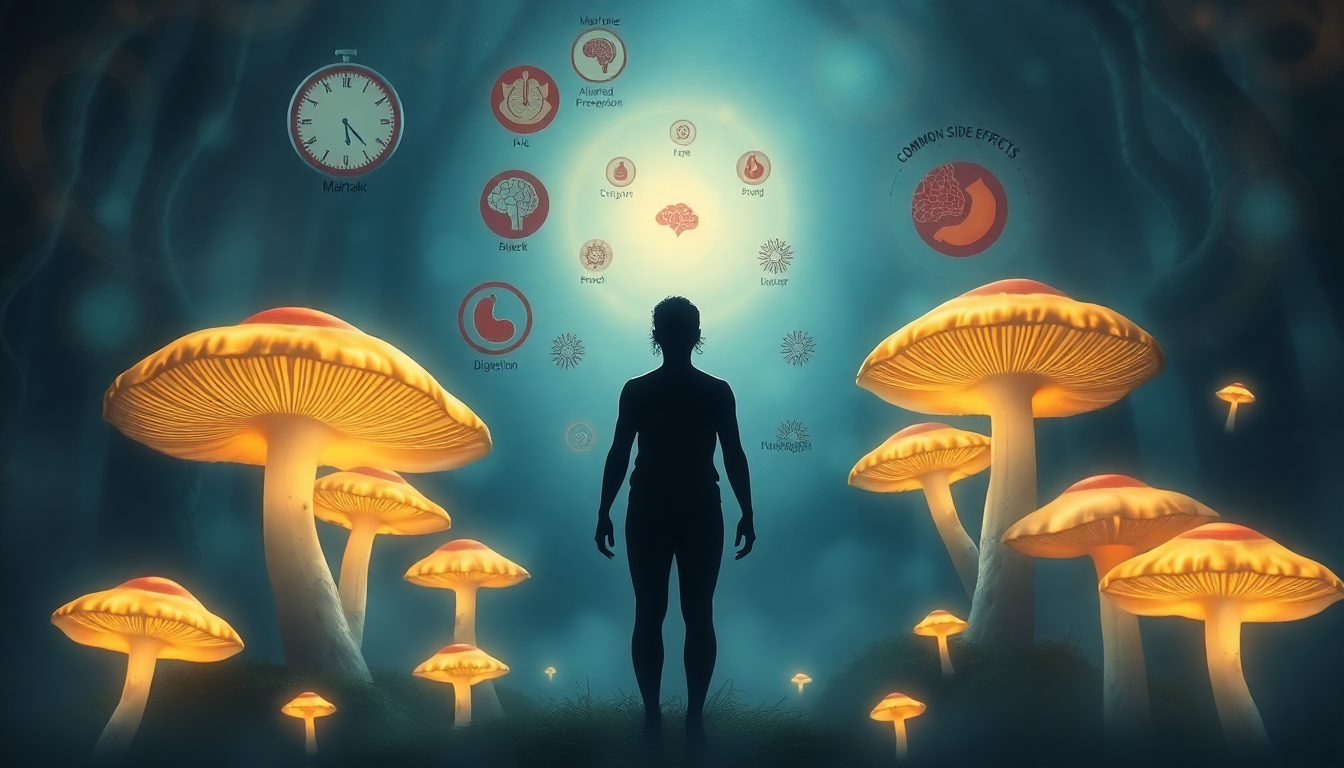

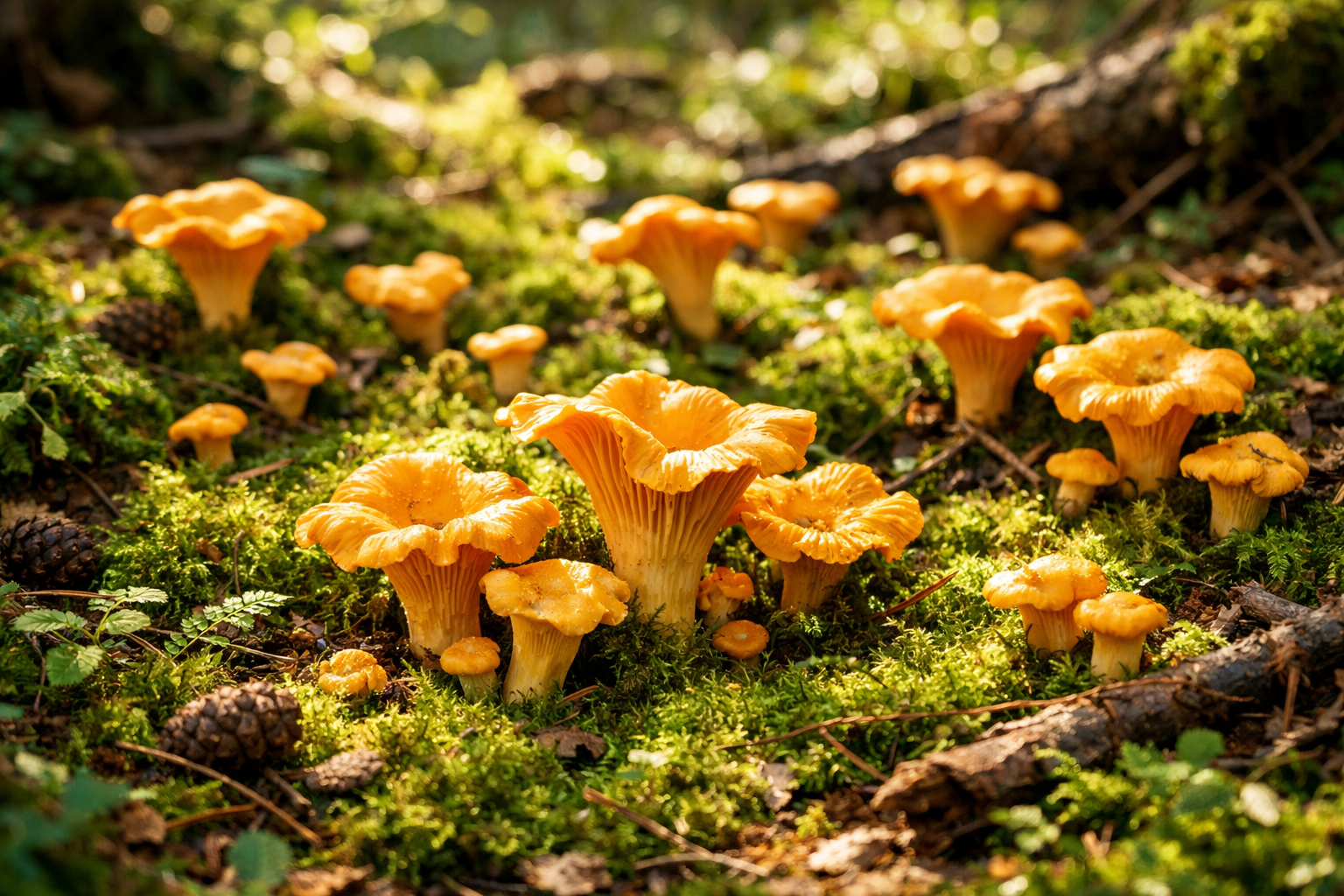
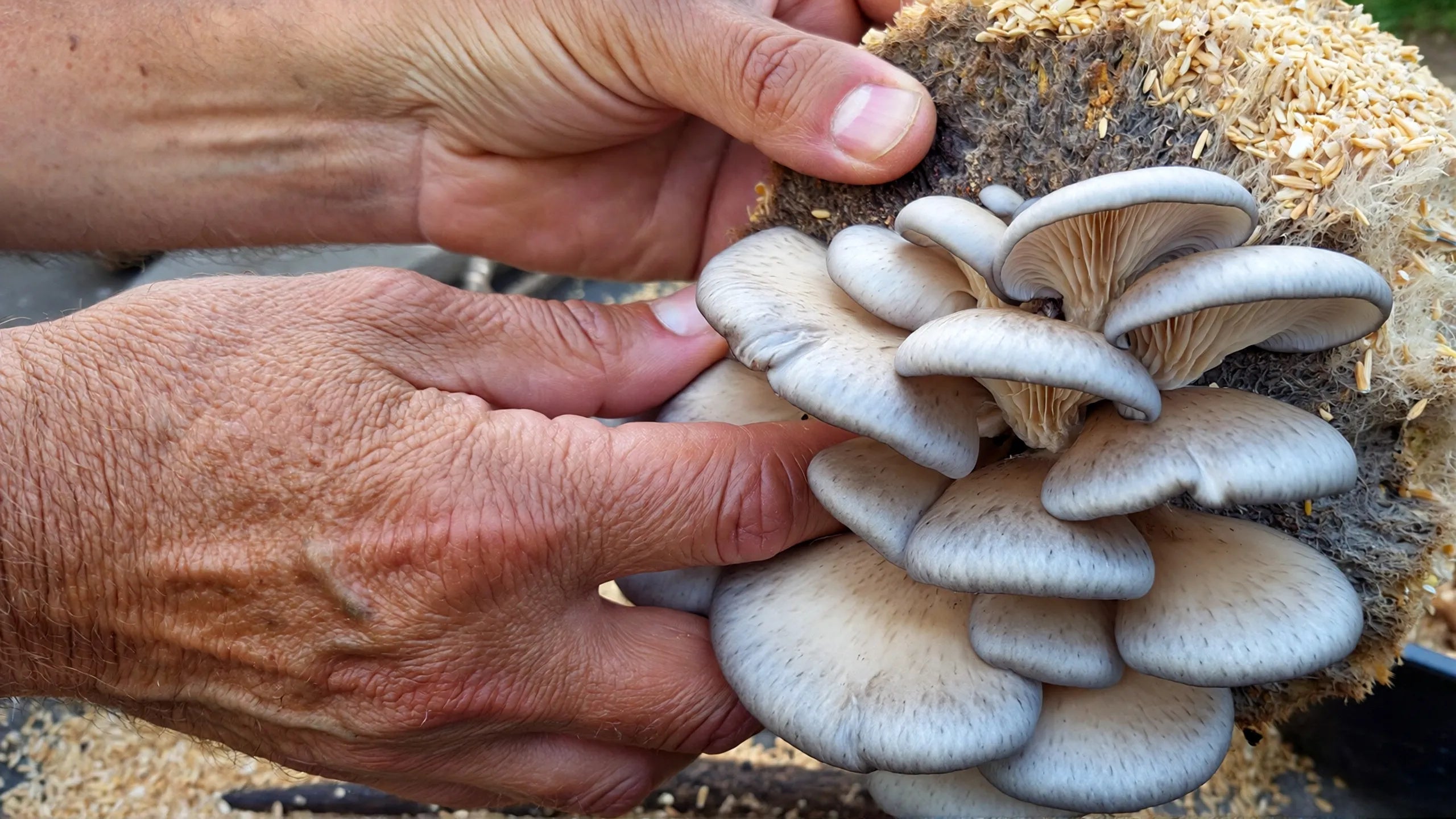
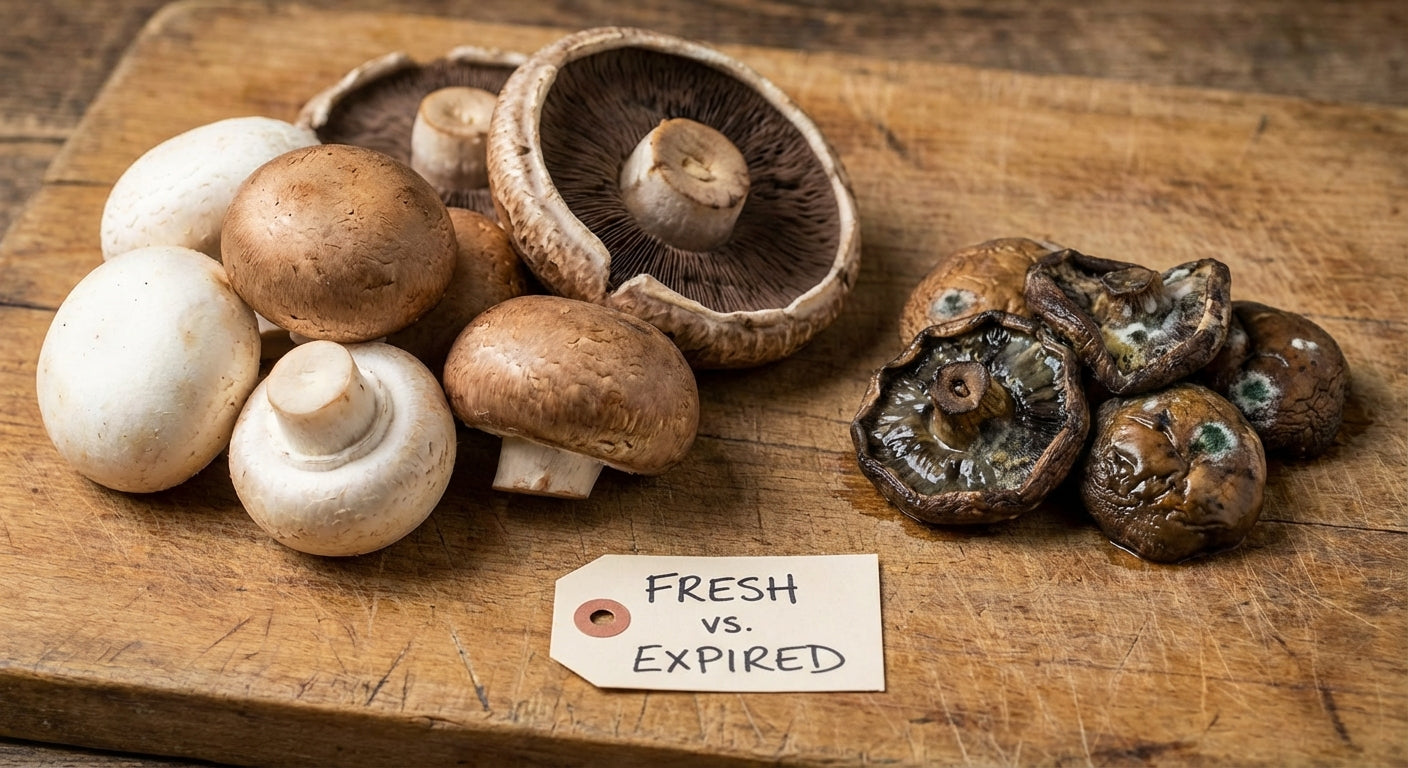
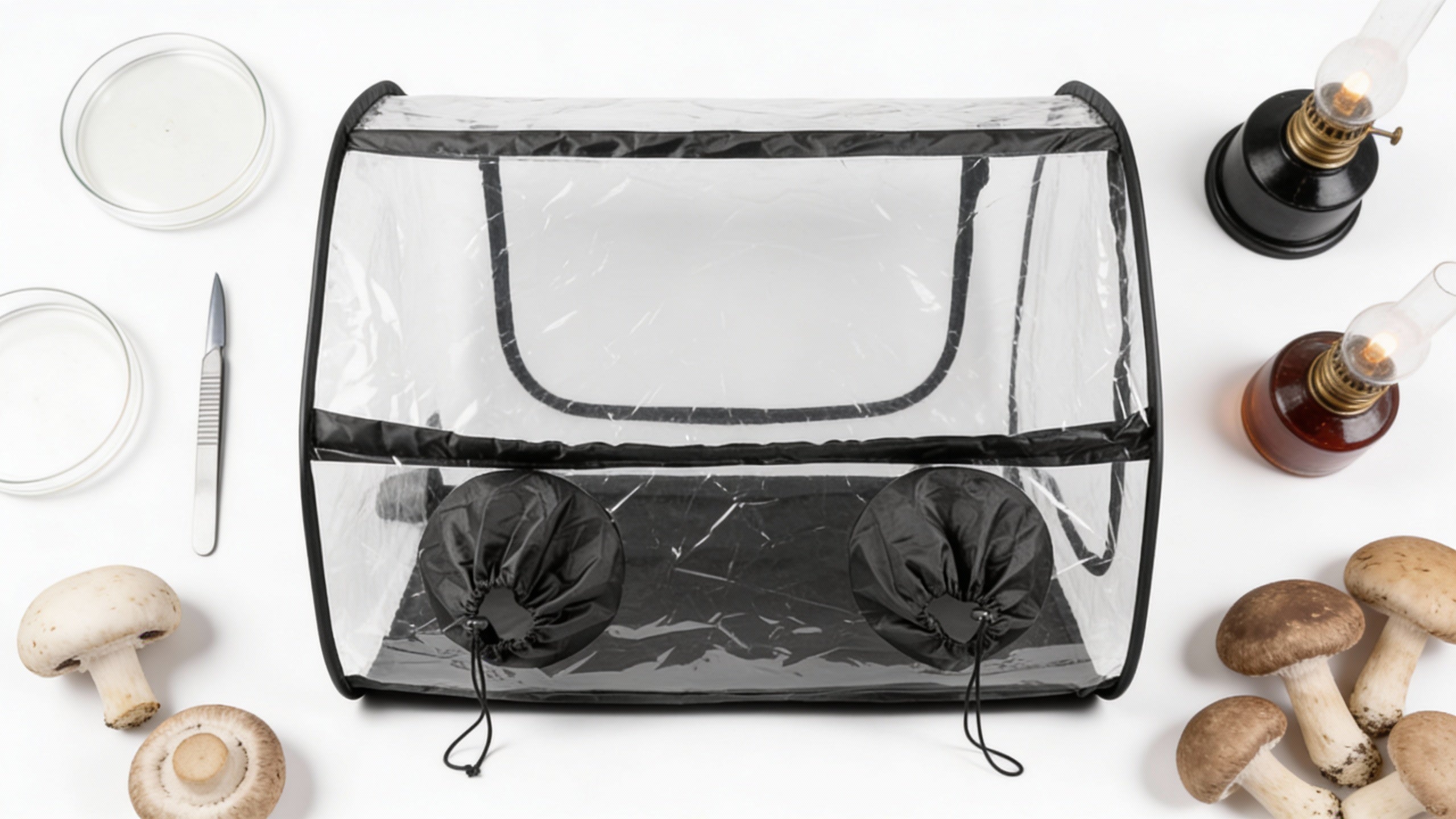

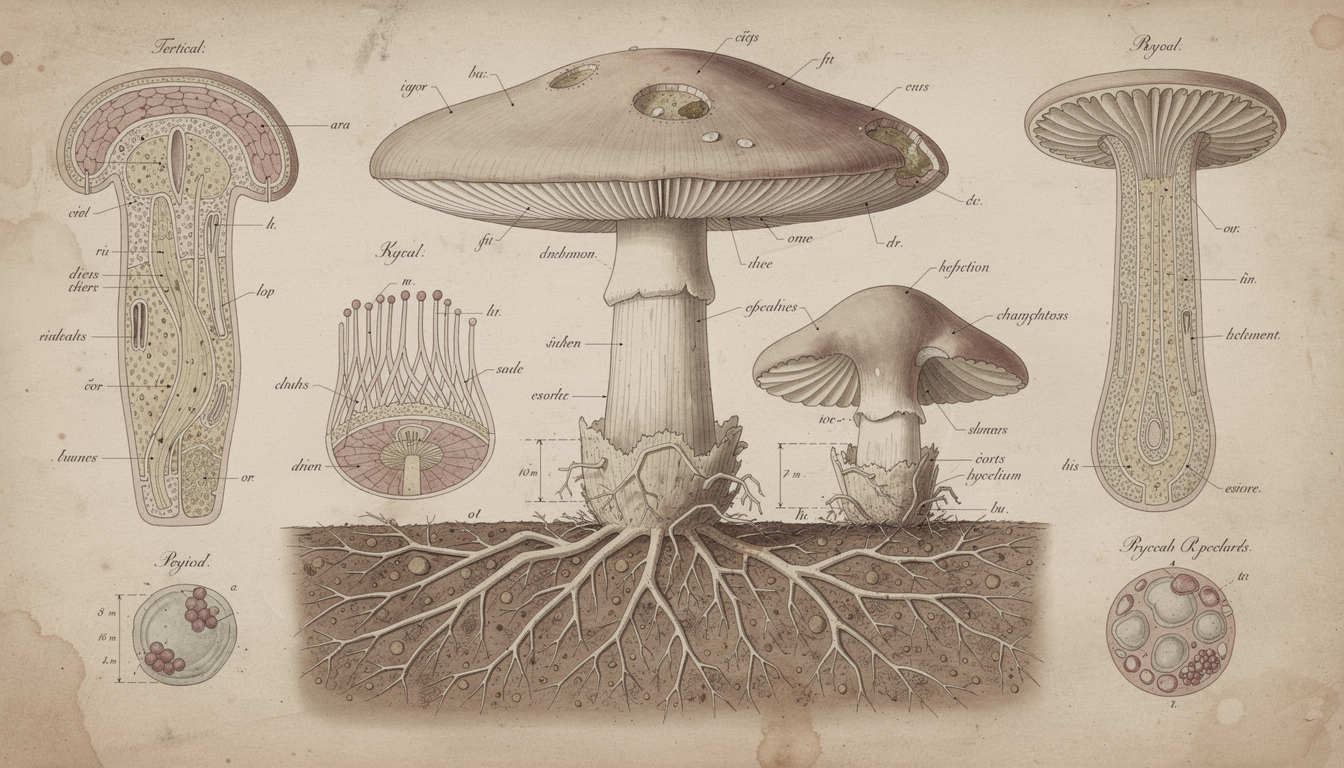
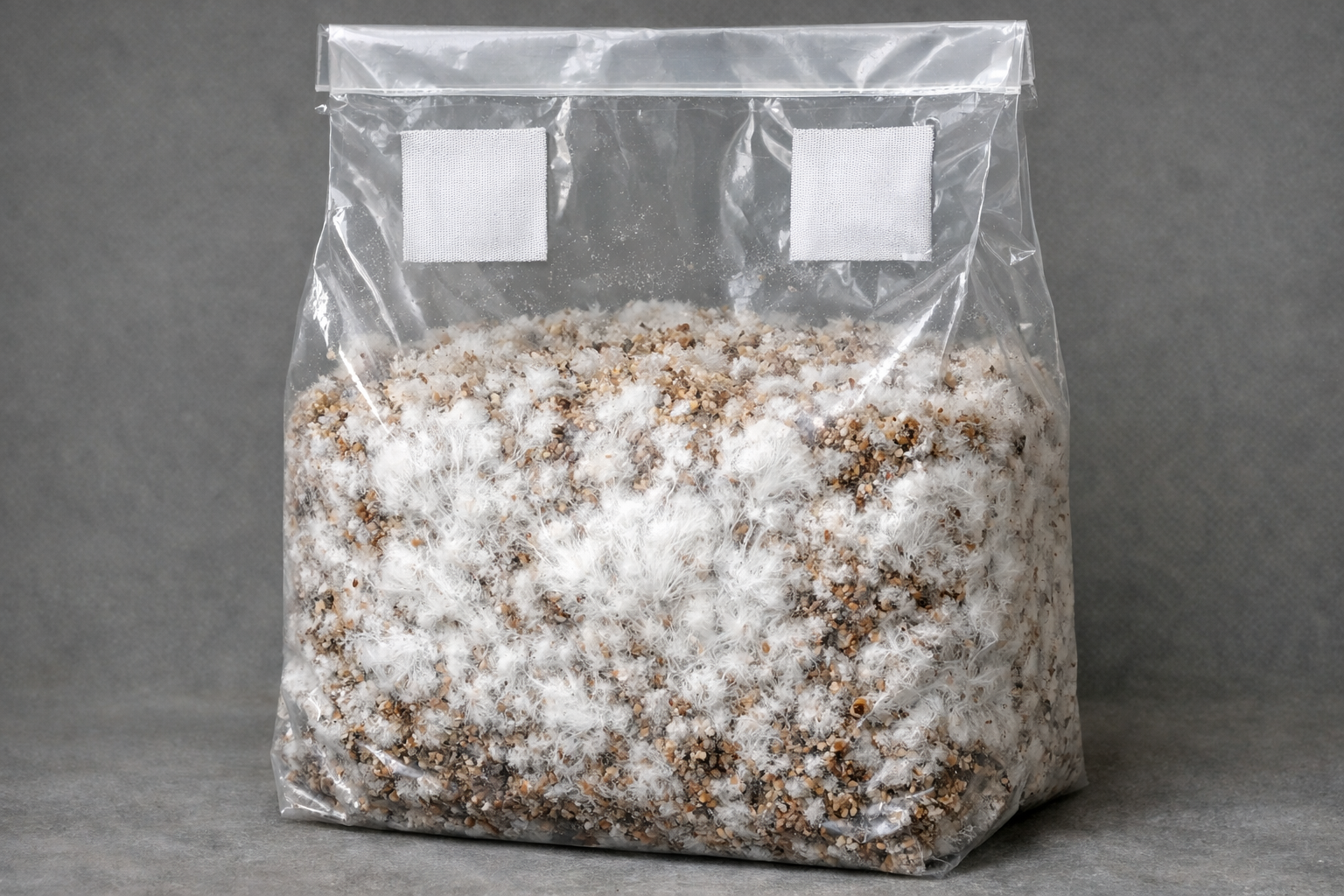


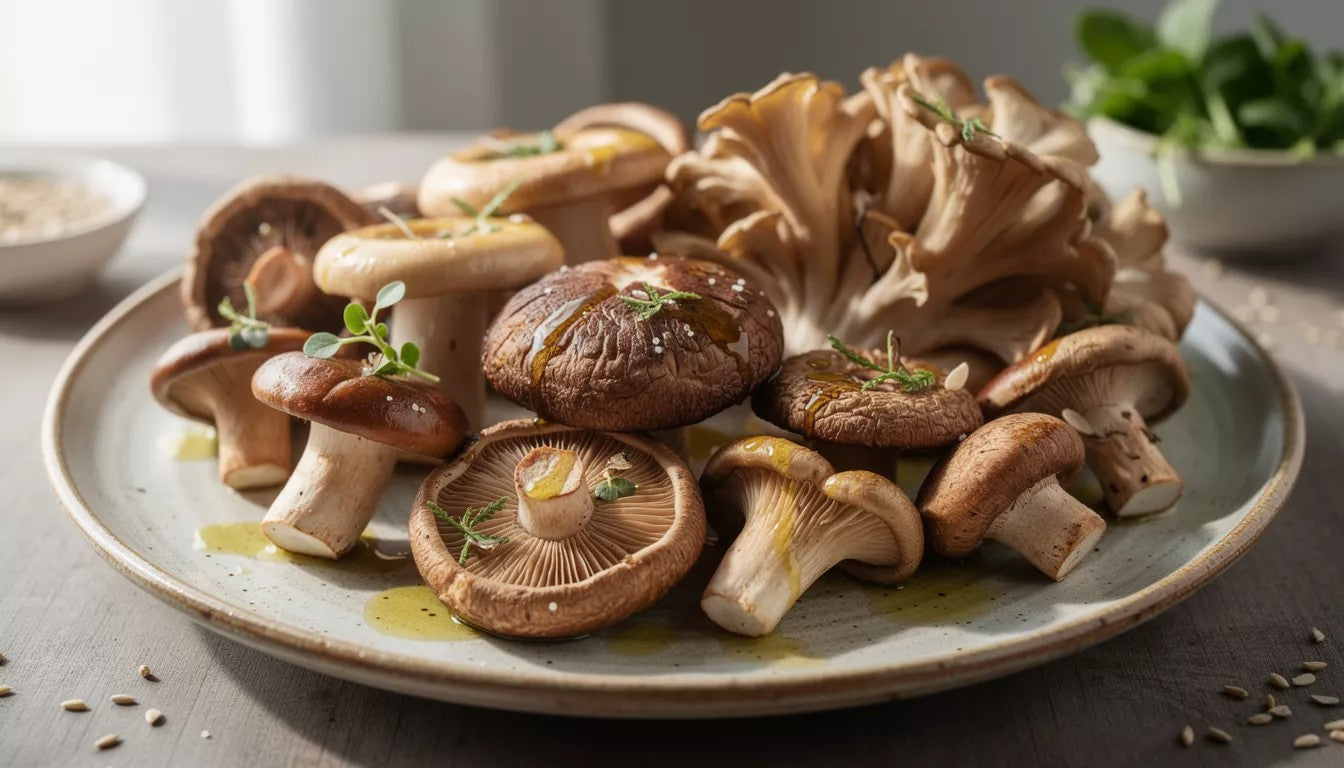
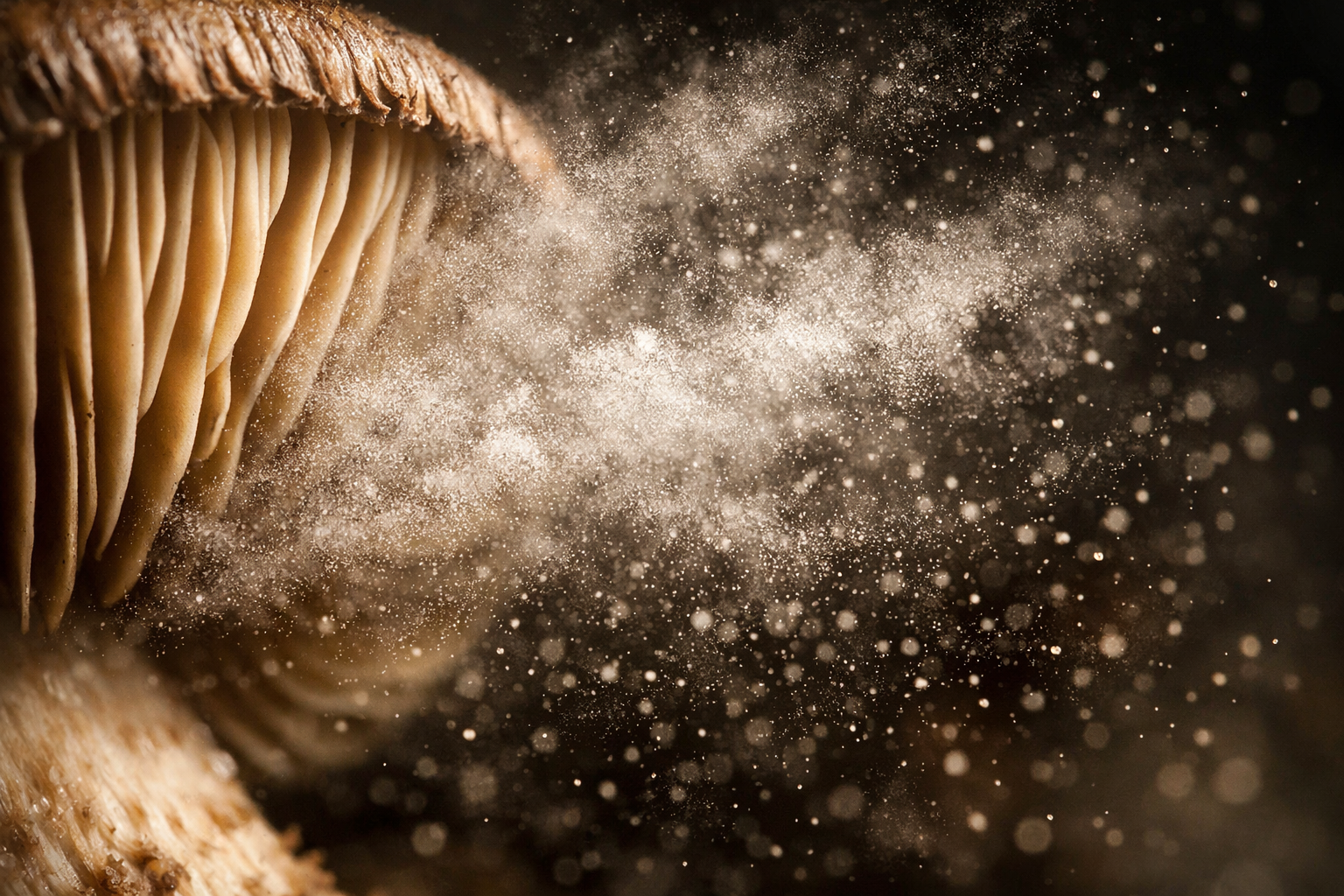
Share:
Roasted Maitake Mushrooms: A Delicious and Nutritious Treat
How to Grow Maitake Mushrooms at Home: A Complete Step-by-Step Guide